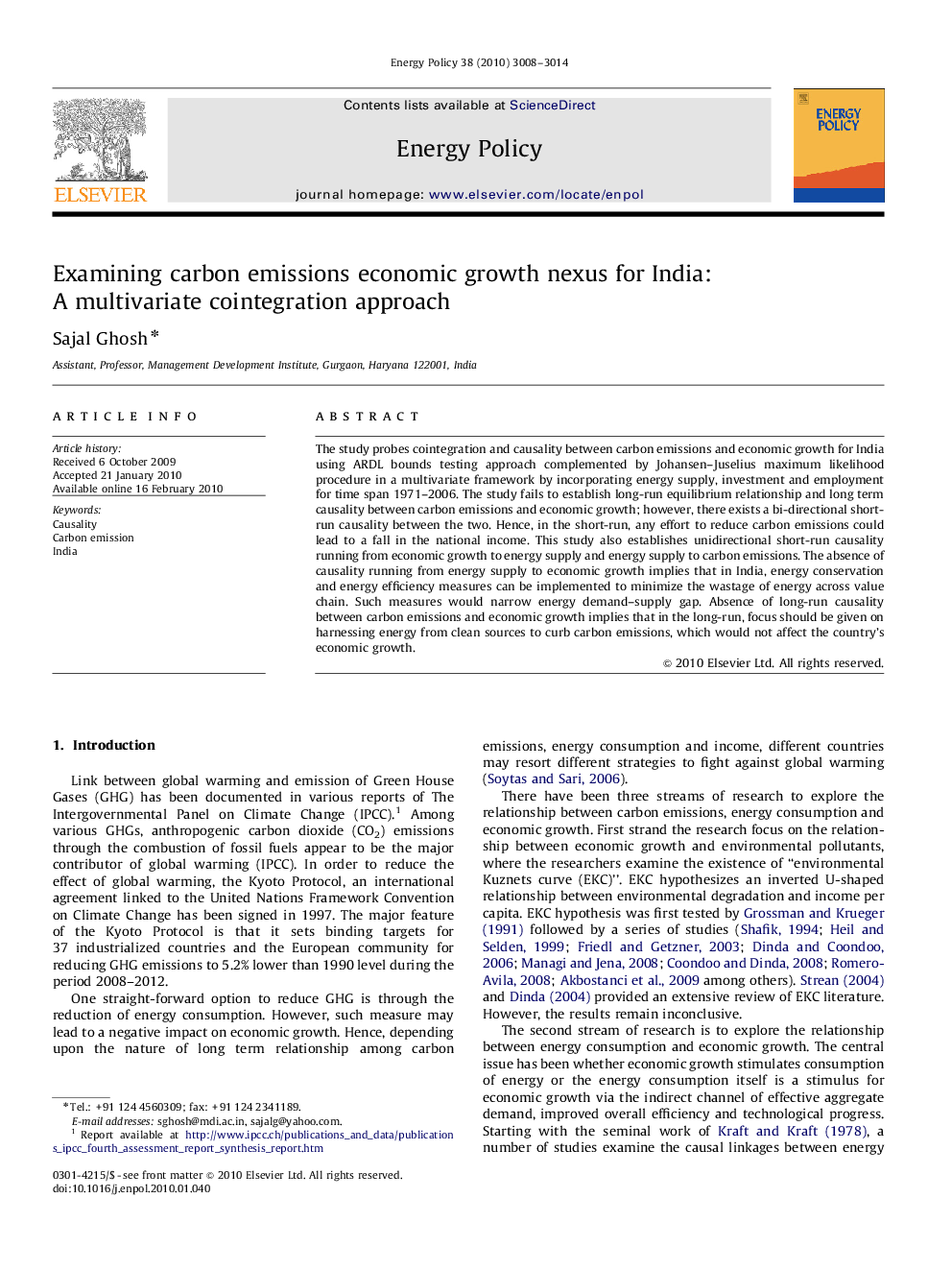| Article ID | Journal | Published Year | Pages | File Type |
|---|---|---|---|---|
| 996563 | Energy Policy | 2010 | 7 Pages |
The study probes cointegration and causality between carbon emissions and economic growth for India using ARDL bounds testing approach complemented by Johansen–Juselius maximum likelihood procedure in a multivariate framework by incorporating energy supply, investment and employment for time span 1971–2006. The study fails to establish long-run equilibrium relationship and long term causality between carbon emissions and economic growth; however, there exists a bi-directional short-run causality between the two. Hence, in the short-run, any effort to reduce carbon emissions could lead to a fall in the national income. This study also establishes unidirectional short-run causality running from economic growth to energy supply and energy supply to carbon emissions. The absence of causality running from energy supply to economic growth implies that in India, energy conservation and energy efficiency measures can be implemented to minimize the wastage of energy across value chain. Such measures would narrow energy demand–supply gap. Absence of long-run causality between carbon emissions and economic growth implies that in the long-run, focus should be given on harnessing energy from clean sources to curb carbon emissions, which would not affect the country’s economic growth.
